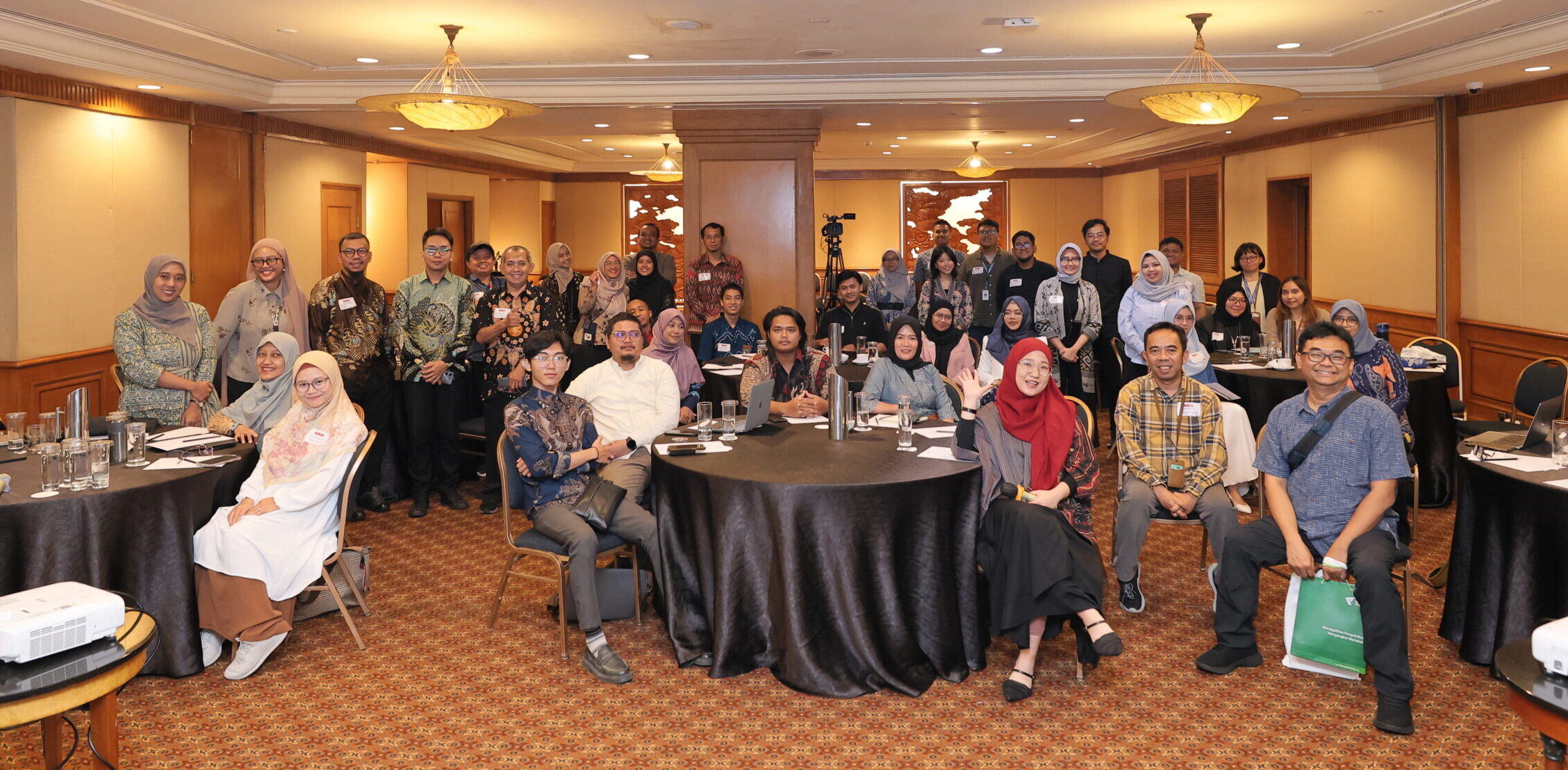The Philanthropy Symposium for Climate Action 2024 Accelerating Indonesia’s Green Transition through Strategic Philanthropy

Jakarta, 21 November 2024 — Perhimpunan Filantropi Indonesia, Dompet Dhuafa, Climateworks Center, and the Environmental & Conservation Philanthropy Cluster organized the Symposium on Philanthropy for Climate Action, themed “Accelerating the Green Transition: The Strategic Role of Philanthropy in Indonesia.” This event provided a platform for collaboration among philanthropic institutions, policymakers, NGOs, and community representatives to discuss philanthropy’s strategic role in advancing climate action across Indonesia.
Climate change is a pressing matter with far-reaching implications for health, the economy, and environmental concerns. As an archipelagic country with rich biodiversity, Indonesia is especially vulnerable to climate change impacts. Projections suggest temperatures could increase by up to 1.4°C between 2040 and 2059 if noaction is taken. This rise threatens food security, economic stability, and the livelihoods of coastal communities. Research by the Ministry of Marine Affairs and Fisheries warns that as many as 1,500 small islands in Indonesia may be submerged by 2050 due to rising sea levels. Additionally, climate-related disasters and vector-borne diseases, such as dengue fever, are expected to become more frequent.
Against this backdrop, philanthropy in Indonesia is becoming increasingly important. Philanthropic organizations play a critical role in funding research, advocating for policy change, and supporting community resilience initiatives. Data from the Indonesia Philanthropy Outlook 2024 reveals that climate and environmental issues rank among the top five priorities for philanthropy in Indonesia, demonstrating a strong commitment to supporting climate action.
The event began with an opening speech by Ahmad Juwaini, Chairman of Dompet Dhuafa, who highlighted the unique characteristic of Indonesian philanthropy: driven by donations from middle- and low-income groups—whom he referred to as “Ordinary People with Extraordinary Faith.” He noted that IDR 3 trillion could be raised and mobilized for climate action, particularly for community-based resilience projects.
Following this, former Minister Bambang Brodjonegoro emphasized the importance of blended finance in accelerating Indonesia’s green energy transition. He pointed out that renewable energy development involves high upfront costs and stressed the need for regulations to encourage a shift from fossil fuels to cleaner energy sources. Brodjonegoro also highlighted the role of philanthropy in addressing funding gaps, particularly for climate adaptation, which receives only a small fraction of available climate finance.
Session 1: Philanthropy and Climate Change – Challenges and Opportunities
The first panel session discussed the challenges and opportunities faced by philanthropic organizations committed to climate action in Indonesia.
Guntur Sutiyono from Indonesia Climateworks Center provided a sobering overview of Indonesia’s climate challenges. He explained that achieving the global goal of limiting temperature rise to 1.5°C is unlikely without significant interventions. Indonesia faces a climate finance gap of approximately IDR 1,200 trillion, while its reliance on fossil fuels remains high. Regulatory and fiscal barriers must be addressed to build climate resilience.
Jalal, Chairman of the Advisory Board of Social Investment Indonesia, identified low public awareness as a major barrier to effective climate action. He noted that Indonesians tend to prioritize humanitarian relief and religious donations over environmental issues. However, he commended recent innovations in Indonesian philanthropy, such as efforts to improve climate literacy and foster multi-stakeholder collaboration
Uminatus Sholikah, one of the board members of Puspita Bahari, a women’s community from Demak, emphasized the critical role of women in climate adaptation. She shared examples of coastal women building economic resilience through cooperatives and legal aid posts, which help communities adapt to rising sea levels.
Alin Halimatussadiah, Head of the Environmental Economics Research Group, Institute for Economic and Social Research (LPEM FEB-UI) highlighted the critical role of research institutions, universities, and think tanks in advancing climate action in Indonesia. These institutions provide data-driven insights and policy recommendations to help integrate climate strategies into government and private sector planning. She cited initiatives like I-CLIMB and Future Food Forum as examples of effective collaboration.
Session 2: Localization Approach for Climate Solutions
The second panel session focused on localizing climate solutions to achieve long-term impacts.
Arif Rahmadi Haryono, General Manager of Programs at Dompet Dhuafa, emphasized the importance of treating disaster-affected communities as active participants rather than passive beneficiaries. Their direct involvement in recovery work builds resilience and self-sufficiency, enabling them to face future challenges more effectively.
Chandra Kirana, Founder of Sekar Kawung Foundation, introduced the concept of appreciative inquiry, which identifies strengths and potential within local communities. She shared how Sekar Kawung supports traditional weavers using natural dyes, preserving cultural heritage while maintaining ecosystems. Sekar Kawung also promotes tamarind syrup and tamarind jam as part of their integrated biodiversity and economic development strategy.
Wahyudi from Yayasan Agri Sustineri explained how localized approaches involve surveys and focus group discussions (FGDs) to design solutions tailored to community. The foundation develops youth competencies through training, enabling them to become resilient agribusiness entrepreneurs. Partnerships with agribusiness startups help enhance access to technology and markets, fostering sustainable local agribusiness growth.
Finally, Ratu Nabillah of the Tay Juhana Foundation presented research on peatland ecosystems, emphasizing their critical role in carbon sequestration and climate mitigation.
The symposium concluded with a clear message: Philanthropy has a vital role in Indonesia’s transition toward a greener future. By fostering local partnerships, engaging communities, and leveraging innovative funding mechanisms, philanthropy can support both climate mitigation and adaptation.
The event emphasized the need for deeper collaboration among philanthropic organizations, government agencies, and community groups to build a sustainable and resilient future for Indonesia. Both session included a Q&A segment, enriching participants’ and speakers’ insights on climate change.

